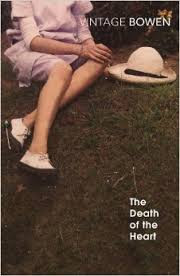
I don’t really know what was going on in the 1930s in Europe, but damn, the literature of that period is tortured. And it’s not tortured in some kind of physical, comprehensible way; their worries are all very non-physical, or metaphysical, or something. This book tells the story of a 16-year-old girl, who after the her mother has died, has to go and live with her half-brother in London. Predictably, everybody is very tortured about this. There are lots of scenes where drinking tea is agony.
Things ramp up a level when a young man who had previously been flirting with the half-brother’s wife becomes interested in the 16-year-old girl. There is some early flirtation, and then immediately . . . to the drama! He goes on about how he doesn’t know why he can’t open up to her; why he loves her, but not in a way she can understand; about how he is weighted down by her expectations. She is completely mystified. A contemporary reader is somewhat less so. GIRL, HE IS OBVIOUSLY GAY. Get over it.
Falling in love with a gay man is by no means an unknown problem in the modern world, but at least today you know what you are doing, and you can ascribe your issue to what it is: ie, your sexuality, rather than your soul.
Elizabeth Bowen is thought by some to be among the most accomplished of 20th-century novelists. On the evidence of this book, I am not among the some
